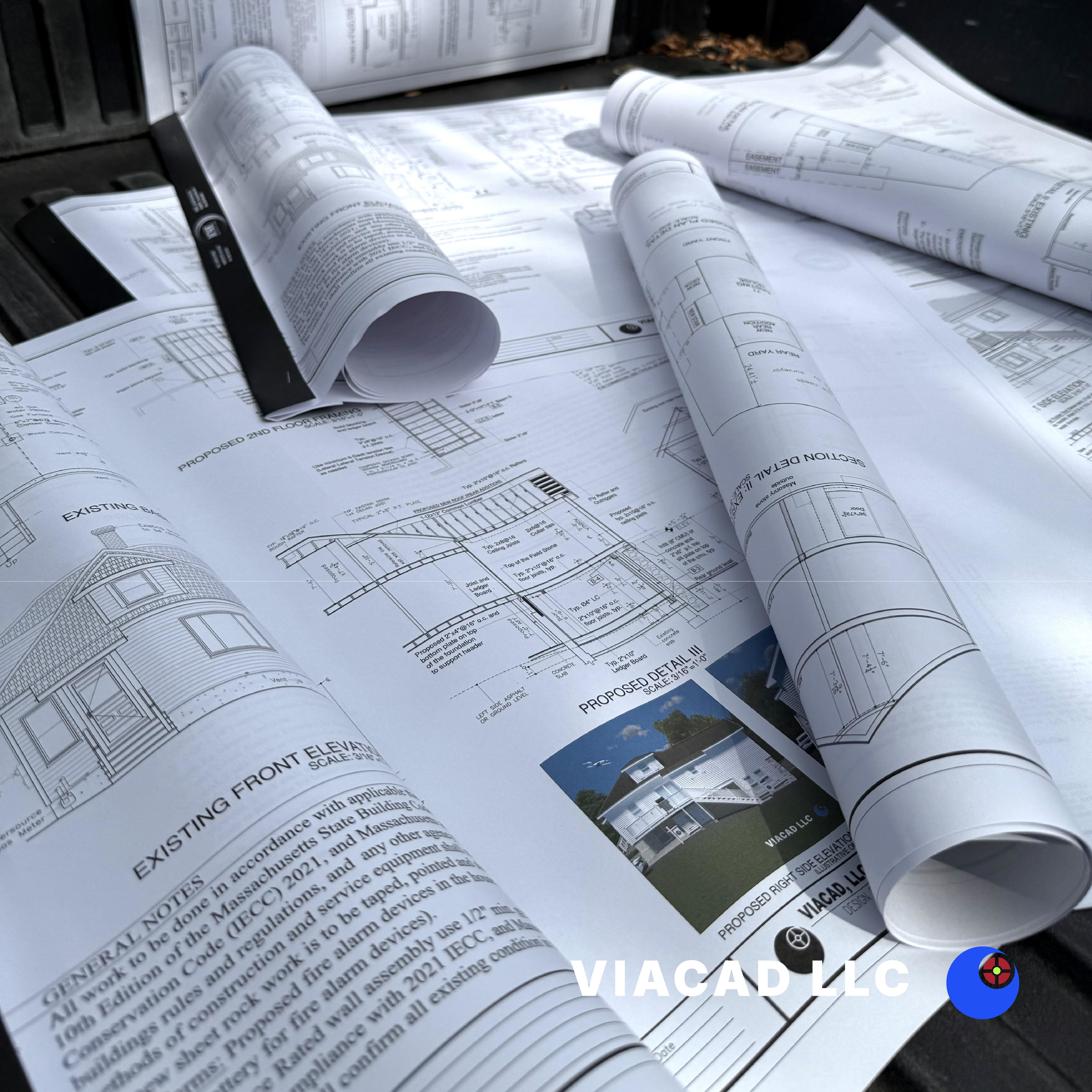
NOTE: VIACAD, LLC specializes in developing and producing detailed building plans (construction blueprints) for both residential and commercial projects across Massachusetts with more than 18 years of experience in design & construction producing professional permit-ready drawings for homeowners, builders, developers, and businesses.
Attic mold is a common problem in Massachusetts homes, especially given the region’s climate and seasonal moisture fluctuations. Understanding how to clean up attic mold in Massachusetts is essential for homeowners who want to protect their living spaces and maintain a healthy environment. Mold growth in attics can be dangerous, leading to serious health risks, structural damage, and costly repairs if left untreated. This article will guide you through effective attic mold removal and attic mold remediation techniques, highlighting the importance of proper ventilation, moisture control, and professional assistance.
NOTE: Information provided here is for educational purposes only.
Mold in the attic often develops due to excess moisture, poor ventilation, and roof leaks. Mold spores thrive in damp, warm environments, and attics with insufficient ridge vents or gable end vents are particularly vulnerable. When mold grows on wood surfaces, insulation, drywall, or plywood, it can penetrate deep into the home’s structure, making remediation challenging. Attic mold can damage the home's structure by deteriorating wood beams and insulation, leading to costly repairs and the potential spread of mold throughout the house's framework. Different types of molds, such as Cladosporium, Penicillium, Aspergillus, and Alternaria, are commonly found in attics, especially in areas with poor ventilation and high humidity.
The presence of mold is not just a cosmetic issue; it poses serious health risks. Exposure to mold spores can trigger respiratory problems, allergic reactions, and other harmful health effects, especially for sensitive family members such as children or those with pre-existing conditions. Therefore, addressing mold growth promptly is crucial for maintaining a safe living environment. If not properly remediated, mold can rest and re-establish itself, leading to recurring problems and additional remediation costs.

In Massachusetts, attic mold growth is often linked to moisture problems caused by roof leaks, condensation, and inadequate ventilation. The original construction of the attic and roof system, including design and materials, can significantly impact ventilation effectiveness and the risk of mold. During the winter months, heat escaping from the house can cause condensation on cold attic surfaces, creating damp conditions ideal for mold and mildew growth. Additionally, dampness from bathrooms, kitchens, or other areas within the house can migrate into the attic if the ventilation system is insufficient. Improper venting of bathroom exhaust fans into the attic can contribute significantly to moisture and mold problems.
Poor attic ventilation, including blocked or missing ridge vents and gable end vents, allows moisture to accumulate, exacerbating the problem. Properly vented roof and soffit systems are essential for preventing moisture buildup and supporting healthy airflow. Homeowners should pay close attention to signs of water damage on the roof sheathing, walls, and insulation, as these can indicate underlying issues that contribute to mold growth. It is also important to check attic windows for leaks or poor seals, as these can further contribute to mold development.
When dealing with attic mold remediation, the preferred method involves a thorough process that includes identifying the moisture source, killing mold, and removing contaminated materials. Attic mold remediation is a job that requires thoroughness and expertise to ensure long-term results. Here’s a step-by-step guide on how to clean up attic mold in Massachusetts:
While some homeowners may attempt DIY mold removal, attic mold remediation often requires extensive experience and specialized equipment to be done safely and effectively. Professional contractors in Massachusetts understand the complexities of mold growth and the health risks involved. They can provide a comprehensive mold removal service that includes moisture assessment, mold testing, and full remediation.
Hiring professionals ensures that mold spores are thoroughly eliminated and that the attic environment is restored to a safe condition. Additionally, professionals can help with the cost-effective repair of structural damage caused by mold, such as wood rot or termite infestations that may accompany prolonged dampness.
Prevention is the best strategy to avoid costly mold removal jobs. Homeowners in Massachusetts should focus on maintaining proper attic ventilation through functional ridge vents and gable end vents, sealing air leaks, and ensuring insulation is adequate but not blocking airflow. Regular roof inspections and timely repairs of leaks or damaged siding and shingles are critical to keeping moisture out.
Managing indoor humidity levels, especially in bathrooms and kitchens, and ensuring that vents are properly ducted to the outside can also reduce the risk of attic mold. During winter, pay attention to condensation issues and consider adding vapor barriers where necessary.
Knowing how to clean up attic mold in Massachusetts is vital for homeowners who want to protect their property and health. Attic mold removal requires addressing moisture problems, properly ventilating the attic, and using effective mold remediation techniques. While some steps can be done by homeowners, professional mold removal services are often the preferred method to ensure thorough and safe remediation.
By taking proactive measures to eliminate mold and prevent future mold growth, Massachusetts homeowners can safeguard their homes against the harmful effects of mold spores and maintain a healthy living environment for their families. If you suspect attic mold in your home, don't hesitate to consult experienced contractors who specialize in attic mold remediation and mold removal in MA.


Currently accepting projects in Massachusetts.